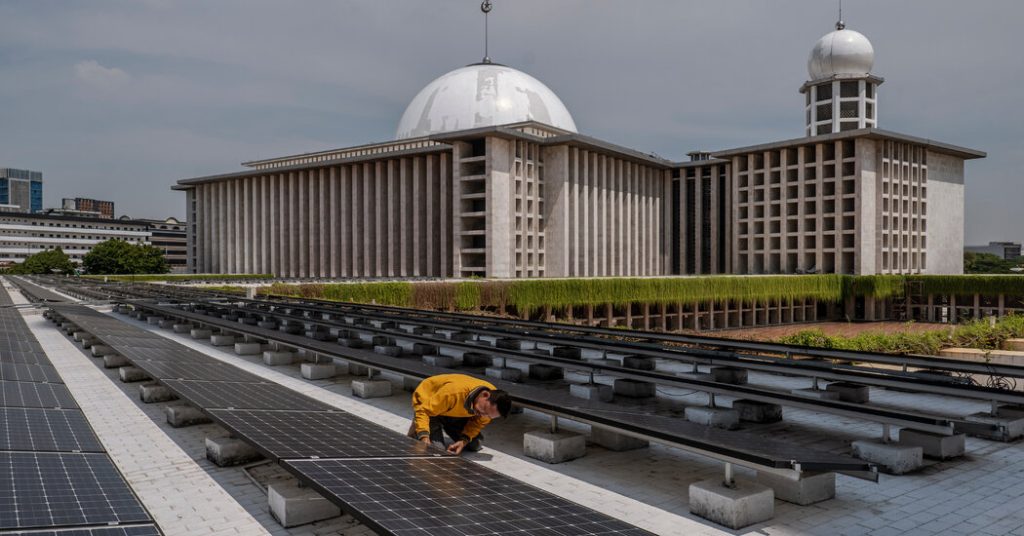Grand Imam Nasaruddin Umar, leading the Istiqlal Mosque in Jakarta, Indonesia, emphasized the importance of environmental stewardship in Islam during a recent sermon. He urged his congregation to adopt eco-friendly practices like giving to renewable energy, planting trees, and reducing waste. The mosque itself has been retrofitted with solar panels, slow-flow faucets, and water recycling systems, earning it recognition as the first green building by the World Bank. The Grand Imam is following Prophet Muhammad’s teachings on caring for nature and hopes to set an example for the rest of the Muslim world in environmental consciousness.
Indonesia, with its majority Muslim population, has also seen a growing interest in environmental activism through Islamic teachings. Top clergy have issued fatwas on climate change, and grassroots movements are spreading awareness about the environmental themes in the Quran. Despite being one of the top global emitters of greenhouse gases and facing challenges like deforestation and extreme weather events, Indonesia has the potential to lead the way in the “Green Islam” movement. The push for environmental conservation is driven by religious leaders who have a significant influence on the population.
The Indonesian Ulema Council, the country’s highest Islamic authority, has played a key role in promoting environmental protection through religious teachings. While some clerics initially saw environmentalism as a peripheral issue, there has been a shift in mindset over time. The Green Army, founded by environmentalist Aak Abdullah al-Kudus, is actively involved in reforestation efforts and raising awareness about the importance of preserving the earth. The movement believes that educating the 200 million Muslims in Indonesia can drive significant change in the country’s approach to environmental conservation.
Elok Faiqotul Mutia, inspired by her childhood experiences witnessing deforestation, founded Enter Nusantara to educate youth on climate change through Islamic values. She believes that Islam offers a gentle approach to environmental conservation and can influence Indonesians more effectively than scientific or political messages. By highlighting the environmental values embedded in Islamic teachings, groups like Enter Nusantara are encouraging mosques to adopt eco-friendly practices like installing solar panels and promoting energy efficiency. The movement aims to transform Indonesian society by incorporating environmental awareness into religious teachings.
Efforts to promote eco-friendly practices in mosques and Islamic schools have gained momentum in Indonesia. The Istiqlal Mosque serves as an example of successful sustainability initiatives within a place of worship, reducing its energy consumption and water usage significantly. The Green Islam movement, supported by organizations like Nahdlatul Ulama and Muhammadiyah, is working to create an environmentally conscious society by incorporating Islamic teachings into conservation efforts. From waste management programs in schools to tree-planting missions led by environmental activists, the movement is making strides in merging environmentalism and Islamic values to protect the earth.
While Indonesia faces challenges like deforestation and increasing greenhouse gas emissions, the Green Islam movement offers hope for a sustainable future. By leveraging the influence of religious leaders and incorporating environmental values into Islamic teachings, the country is taking steps to address climate change and promote eco-friendly practices. With ongoing efforts to educate and engage the Muslim population in environmental conservation, Indonesia could serve as a model for other Muslim-majority countries seeking to embrace sustainability through religious teachings and community initiatives.


